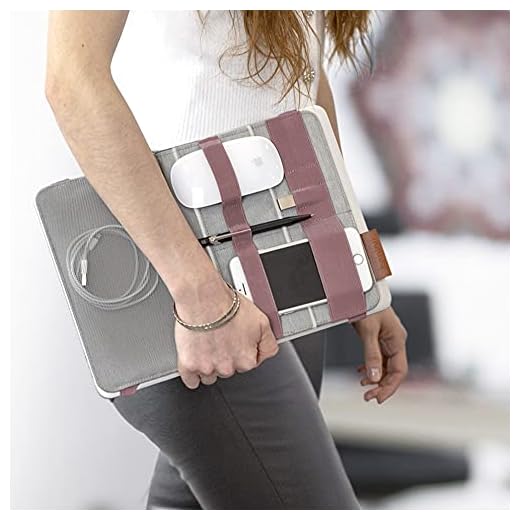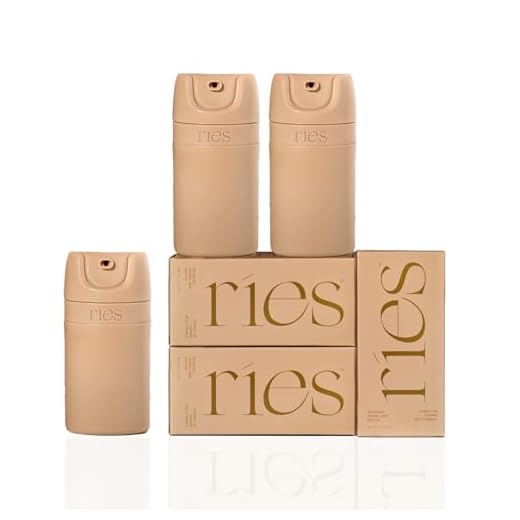



Prioritize the liquid regulations: each container must not exceed 3.4 ounces (100 milliliters) and must fit into a single quart-sized bag. Ensure your toiletries are neatly stored to facilitate easy access during security checks.
Choose lightweight materials for your clothing. Utilize packing cubes to organize items efficiently, allowing for maximum space utilization. Rolling garments instead of folding can also help minimize wrinkles while optimizing volume.
Avoid overstuffing. Adhere to airline size restrictions to prevent potential fees. Reserve enough room for duty-free purchases or items acquired during your travels.
Include versatile clothing pieces that can be mixed and matched. This approach reduces the number of items required while providing various outfit options. Check weather forecasts at your destination to adjust your selections accordingly.
Let go of prohibited items like sharp objects, sporting equipment, or firearms. Familiarize yourself with the regulations of your airline regarding restricted goods to avoid confiscation at security.
Incorporate a lightweight jacket or sweater, as cabin temperatures can fluctuate. Opt for shoes that are easy to remove, minimizing delays during the security process.
Keep essential documents and electronic devices easily accessible. A dedicated pocket for your passport, boarding pass, and phone streamlines the boarding process.
Do’s and Don’ts of Packing Carry-On Luggage
Prioritize dimensions: Always check the size and weight restrictions set by your airline. Ensure bags fit within the stipulated measurements before arriving at the airport.
Utilize packing cubes: These can organize items effectively, allowing easy access without rummaging through everything. Categorize clothes, toiletries, and electronics separately.
Limit liquid containers: Adhere to the 3-1-1 rule for liquids. Each container should not exceed 3.4 ounces, all must fit into a single quart-sized bag. This simplifies security checks.
Invest in a travel wallet: Store important documents, like passports and boarding passes, for quick retrieval. This avoids delays during check-in and security procedures.
Wear bulkier items: If you’re bringing a jacket or heavy shoes, wear them to save space. This tactic minimizes weight and maximizes room in your bag.
Keep electronics accessible: Place laptops or tablets at the top of your bag for effortless removal during security screening. Follow guidelines for electronic devices to expedite the process.
Avoid packing prohibited items: Familiarize yourself with the list of items not allowed on board. This includes sharp objects, large batteries, and flammable materials.
Refrain from overpacking: Stick to a versatile wardrobe. Select clothing that can be mixed and matched to create different outfits, reducing the number of pieces required.
Don’t ignore weight limits: Weigh your bag at home to prevent overages at check-in. Airlines often impose fees for overweight baggage, which can be avoided with careful planning.
Consolidate chargers: Instead of bringing multiple chargers, opt for a universal charger. This reduces clutter and ensures compatibility with various devices.
Avoid bulky toiletries: Transfer products into travel-sized containers or use bar versions when possible to conserve space effectively.
Selecting the Right Bag for Your Trip
Choose a bag that meets airline dimensions for personal items and hand-held gear. Prioritize options with multiple compartments for organization.
- Size Matters: Verify size restrictions from your airline’s website.
- Weight: Aim for a lightweight bag to maximize what you can include.
- Material: Consider durable materials that can withstand rough handling.
- Wheels vs. No Wheels: Wheeled options are better for navigating airports, while backpacks provide versatility.
- Easy Access: Look for bags with side pockets for quick essentials.
For travelers with specific needs, options like the best luggage storage for a motorcycle can be beneficial.
Additionally, ensure easy cleaning features, such as with the best cargurus pressure washer wand, which could help maintain the bag’s exterior over time.
Maximizing Space with Packing Techniques
Utilize rolling instead of folding for clothing. This method minimizes creases while maximizing space efficiency. Roll items like t-shirts, pants, and lightweight jackets tightly for optimal results.
Employ compression bags for bulkier items. These bags can drastically reduce volume by removing air. Perfect for sweaters or jackets, they fit snugly into tight spots.
Incorporate packing cubes to maintain organization while optimizing space. Use different sizes for garments, accessories, and toiletries, ensuring easy access without disarray.
Prioritize versatile clothing. Select pieces that can be mixed and matched easily. Neutral colors and adaptable styles enhance outfit combinations without overcrowding.
Fill every available space. Stuff socks and small items into shoes, and utilize the gaps between bigger items efficiently. Small accessories can be tucked into corners or pockets of larger clothing.
Consider multi-functional gear. Choose bags that can serve as both a backpack and a handbag, or clothing items that transition from day to night settings, further conserving space.
Limit the usage of large toiletries by opting for travel-sized containers. This not only saves space but also adheres to airline regulations regarding liquids.
Lastly, practice minimalism. Assess the necessity of each item before packing. Reducing excess ensures a more manageable and organized experience, providing flexibility in your storage.
Packing Liquids and Electronics Safely
Store liquids in containers of 3.4 ounces (100 milliliters) or less. Use a clear, resealable quart-sized plastic bag for transportation. Limit your total volume to one bag per person. This reduces the risk of spills and ensures compliance with regulations.
Liquid Storage Tips
Check for leaks prior to packing. Secure lids tightly and consider wrapping bottles in clothing or bubble wrap for extra protection. Avoid overfilling containers, which can lead to spillage.
Electronics Protection
Keep devices easily accessible for security checks. Use protective cases to shield fragile items from impact. Consider storing batteries separately if allowed by the airline; do not place loose batteries in your bag as they pose a fire risk.
Charge electronic devices fully before travel. This helps ensure functionality during inspections and can help avoid additional checks.
Avoid placing heavy items atop electronics. Pack items strategically to minimize pressure and prevent damage during transit.
Understanding Airline Regulations and Restrictions
Research specific airline rules well in advance. Each carrier has unique guidelines regarding dimensions, weight allowances, prohibited items.
- Know Size Limits: Measure your total dimensions, height, length, width, before booking.
- Weight Restrictions: Weigh belongings carefully; avoid penalties for exceeding limits.
- Prohibited Items: Familiarize yourself with banned materials such as sharp objects, certain sports equipment.
- Liquid Regulations: Adhere strictly to the 3-1-1 rule for liquids: containers must not exceed 3.4 ounces, packed in one quart-sized bag.
- Electronics Guidelines: Keep electronics accessible for security screening; ensure larger devices are easily removed.
Check for updates to rules before departure; last-minute changes can affect what can be brought on board.
- Special Items: Review policies regarding specific gear, such as medical devices or baby supplies.
- Frequent Flier Programs: Leverage information from loyalty programs; they often provide additional insights.
Planning with regulations in mind maximizes efficiency and lessens stress during travel. Always stay informed for smooth experiences.
Items to Always Include and What to Leave Behind
Always pack your travel documents, including passport, visa, and boarding pass, in an accessible pocket. A charger for electronic devices is necessary, along with a portable power bank, to avoid running out of battery. Include a small toiletry bag with essential items like toothbrush, toothpaste, and deodorant. A pair of comfortable socks or a light blanket can enhance comfort during your flight.
Consider having a change of clothes ready for unexpected delays. Noise-canceling headphones or earplugs can help you relax or sleep. A book or e-reader provides entertainment that doesn’t rely on battery life, ensuring quiet and uninterrupted enjoyment. Snacks with a long shelf life are always a smart addition.
| Items to Include | Items to Leave Behind |
|---|---|
| Travel documents | Sharp objects |
| Charger and power bank | Heavy electronics |
| Toiletries in travel-size | Full-size bottles |
| Comfort items (socks, blanket) | Bulk clothing |
| Noise-canceling headphones | Expensive jewelry |
| Snacks | Perishable food |
Avoid packing high-value items, such as jewelry or important documents that aren’t necessary during travel. Don’t include full-size categorically restricted items, and stay clear of products that may leak or cause messes. Prioritize lightweight essentials to maximize available space.








